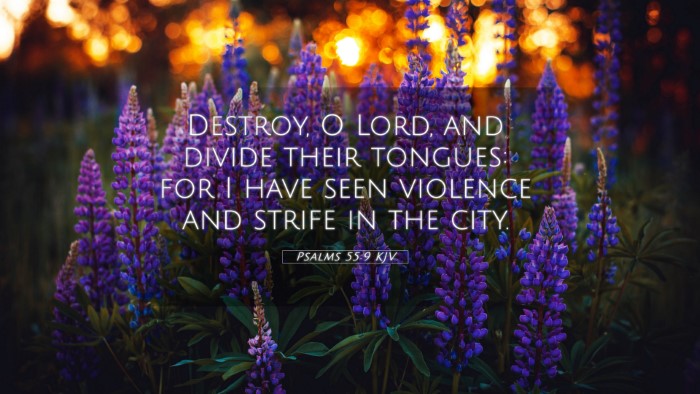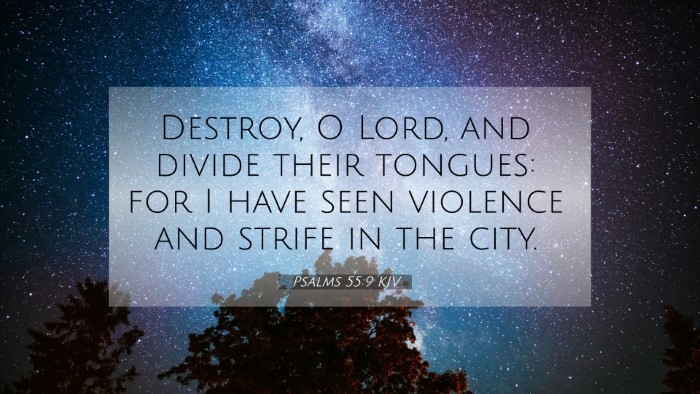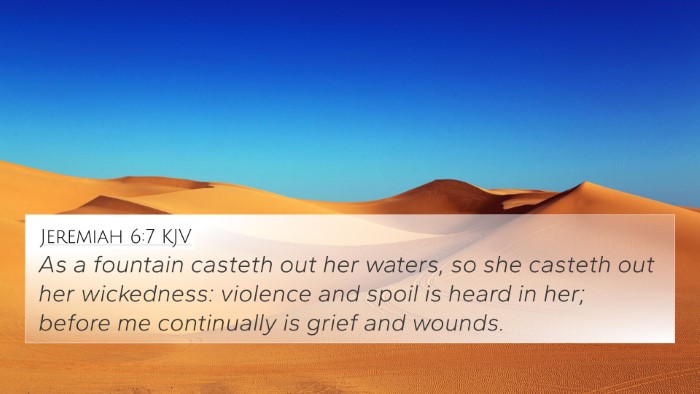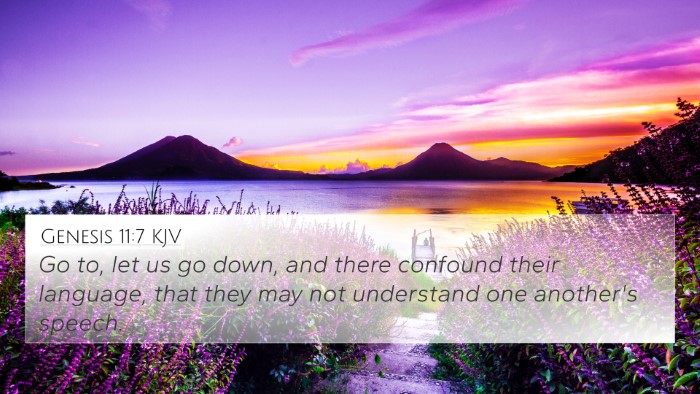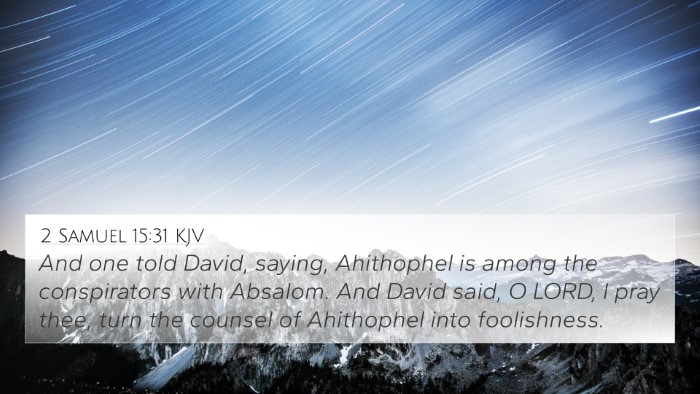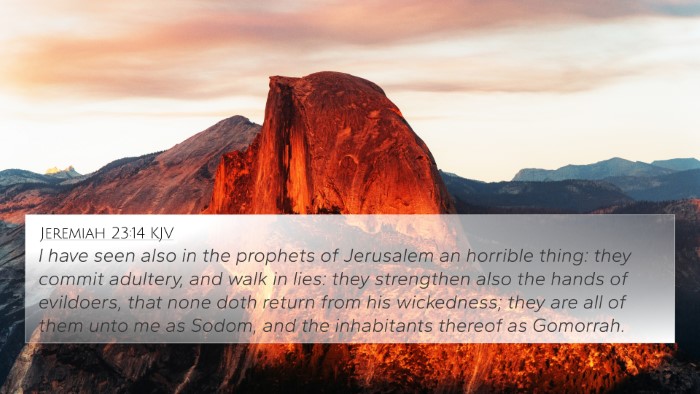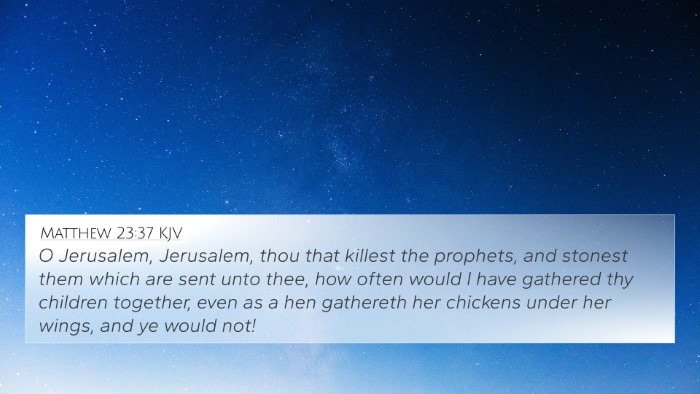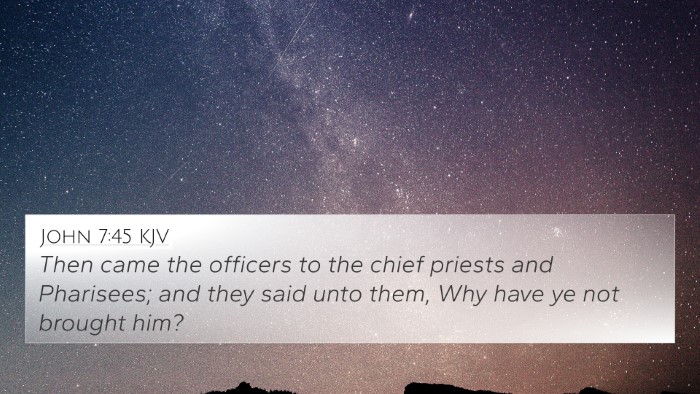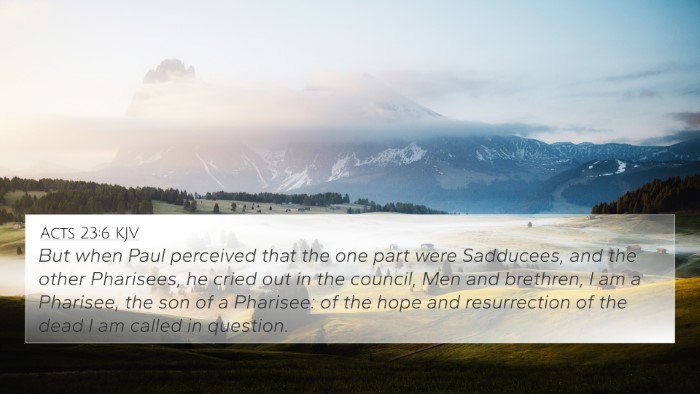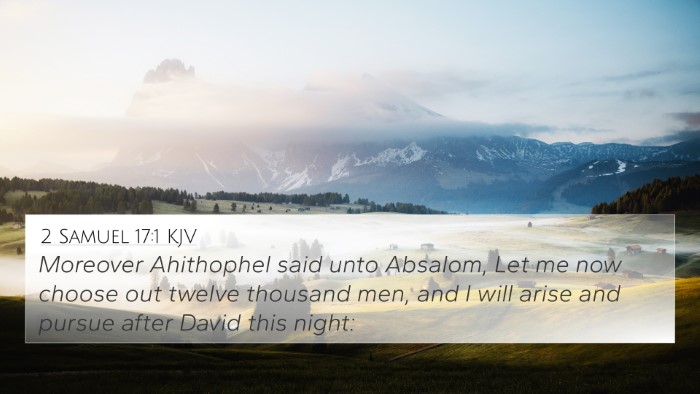Understanding Psalm 55:9
Verse: "Destroy, O Lord, and divide their tongues: For I have seen violence and strife in the city."
Overview
The Psalmist in Psalm 55 expresses deep anguish and a plea for divine intervention against those who engage in deceit and treachery. This verse highlights the desire for God to break the communication among the wicked, suggesting that their united efforts in rebellion and violence need to be thwarted.
Contextual Meaning
This verse is situated within a lamentation. The writer feels surrounded by enemies, metaphorically speaking of violence and strife as rampant in the city. The request to "destroy" and "divide their tongues" underscores the urgency of the Psalmist's plea, reflecting a desire for chaos among adversaries as a means of fostering peace.
Commentary Insights
-
Matthew Henry:
Henry emphasizes the anguish of the Psalmist, drawing attention to the inappropriate use of speech by the wicked. He interprets the request for division of tongues as an echo of divine action against confusion, reminiscent of the Tower of Babel, where God thwarted human efforts at unity in defiance of His will.
-
Albert Barnes:
Barnes expands on the themes of the psalm, asserting that the request for destruction of the wicked's unity implies a strategic need for God to intervene. He connects this with the moral order, indicating that divine justice must respond to human evil, specifically calling attention to the prevalent strife in communities that impacts the Psalmist.
-
Adam Clarke:
Clarke provides a purposed perspective, suggesting that the Psalmist's plea reflects a righteous desire for divine judgment upon oppressors. He articulates the significance of communal unity in speaking evil, signaling that disruption among malicious individuals is necessary to restore peace.
Bible Verse Cross-References
- Genesis 11:7 - "Come, let us go down and confuse their language..." (The division of languages as divine intervention)
- Psalm 31:18 - "Let the lying lips be put to silence..." (A call for the silencing of deceitful speech)
- Psalm 12:3 - "May the Lord cut off all flattering lips..." (The desire for God to intervene against deceit)
- Proverbs 6:19 - "A false witness who breathes out lies..." (Condemnation of those who sow discord)
- James 3:10-12 - "From the same mouth come blessing and cursing..." (The power of tongue and its duality)
- Matthew 12:36 - "I tell you, on the day of judgment people will give account for every careless word..." (God's judgment on speech)
- Romans 3:13-14 - "Their throat is an open grave; they use their tongues to deceive..." (The destructive nature of deceitful speech)
Thematic Bible Verse Connections
The request to divide tongues resonates with themes found throughout the Bible, showcasing a recurring motif of divine correction against human rebellion.
Interactions with Other Scriptures
The Psalms often serve as a mirror to the conflicts recurrent in other scriptural texts. Cross-referencing mechanisms reveal dialogues between the oppression described in this Psalm and the prophetic or New Testament accounts of judgment:
- Jeremiah 9:8 - "Their tongue is a deadly arrow; it speaks deceitfully..."
- Revelation 21:8 - "But as for the cowardly, the faithless, the detestable..." (Final judgment on the wicked)
Tools for Bible Cross-Referencing
Utilizing resources such as a Bible concordance or a cross-reference Bible study guide can provide deeper insight into the connections between these scriptures.
Conclusion
Psalm 55:9 ultimately serves as a significant poetic cry for divine providence, reinforcing key biblical principles concerning the management of speech and the need for justice. Through comprehensive analysis and cross-referencing, one can see how interconnected the themes of divine justice and the human condition really are.
Further Study Recommendations
For personal development, readers are encouraged to explore the interconnections and themes established in Psalms and how they surface across both testaments, enhancing one's understanding of scriptural cross-referencing.

